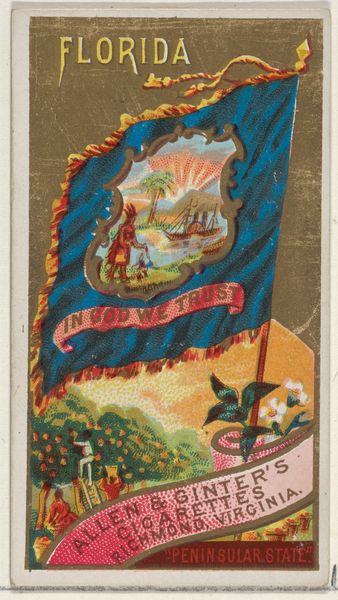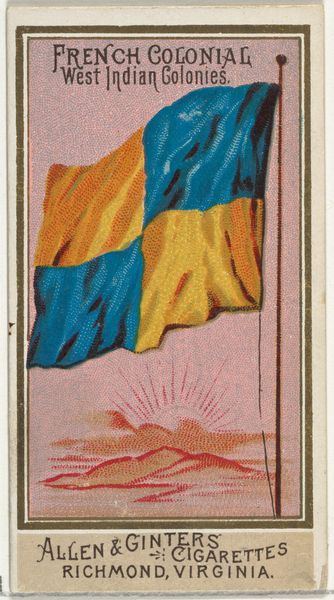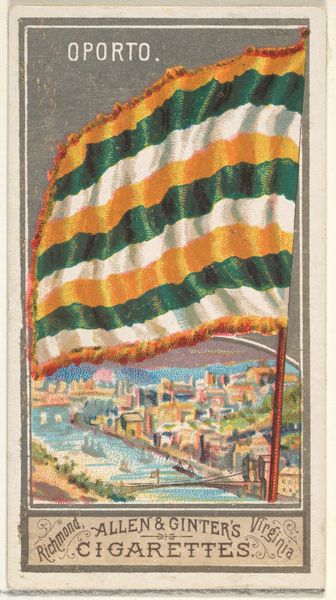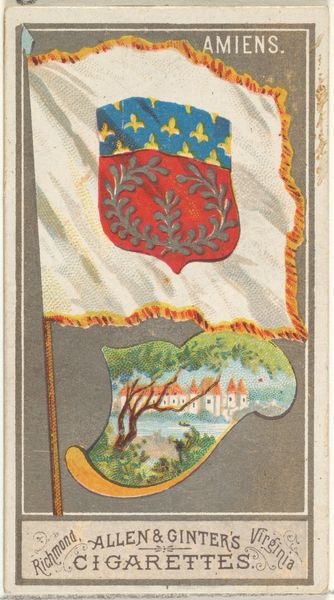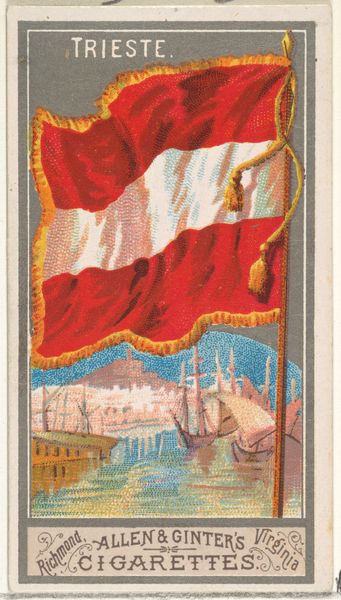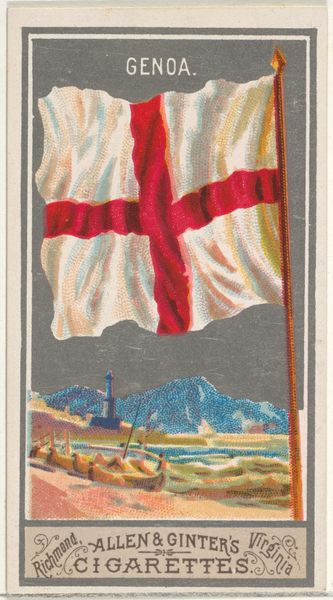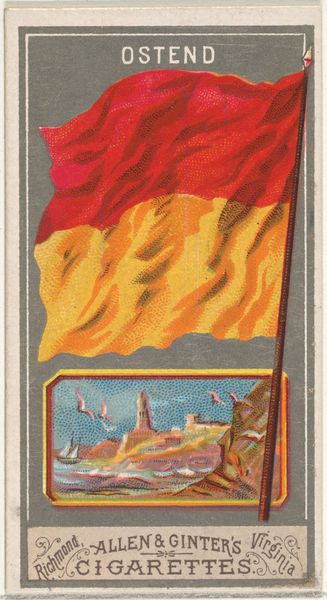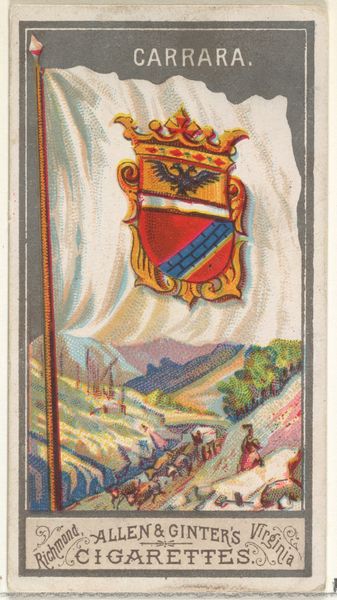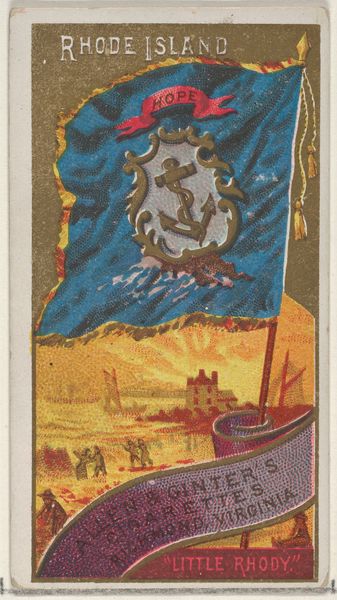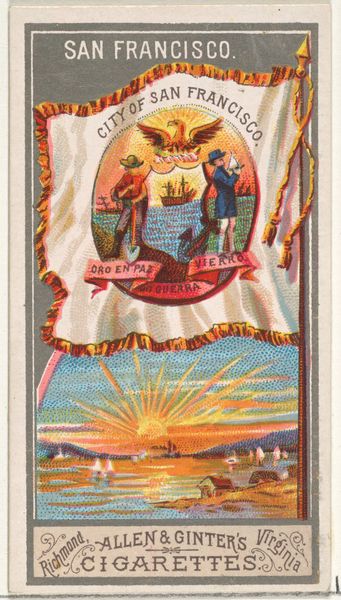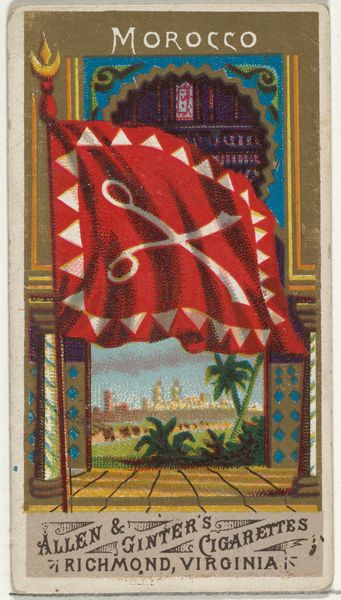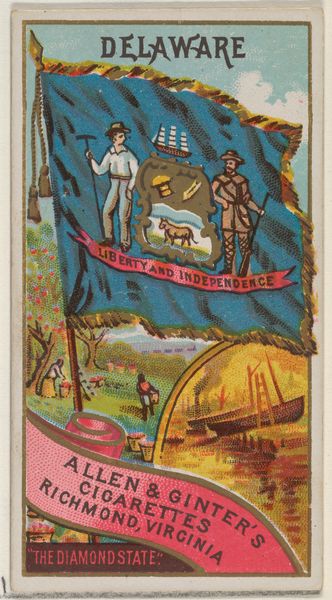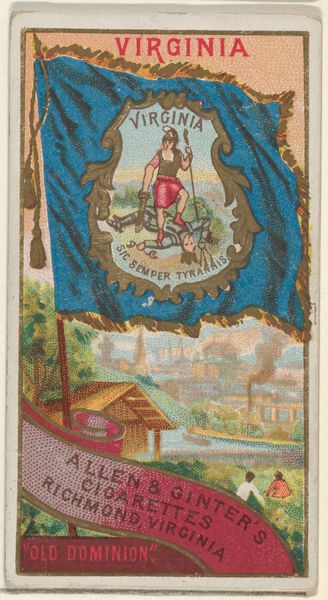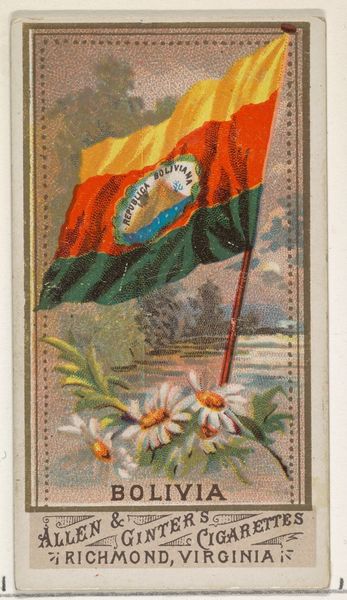
Zanzibar, from Flags of All Nations, Series 2 (N10) for Allen & Ginter Cigarettes Brands 1890
0:00
0:00
# print
#
landscape
#
orientalism
#
watercolour illustration
Dimensions: Sheet: 2 3/4 x 1 1/2 in. (7 x 3.8 cm)
Copyright: Public Domain
Editor: This is "Zanzibar, from Flags of All Nations," a print and watercolor drawing created around 1890 by Allen & Ginter, known for their cigarette cards. The colours are quite striking. What do you see in this piece, beyond the immediate depiction of a flag and a landscape? Curator: It’s crucial to acknowledge that this seemingly innocent image is steeped in colonial power dynamics. Allen & Ginter, a cigarette company, used images like this to romanticize and exoticize distant lands, promoting a vision of global domination to their consumers. How do you see that playing out in this particular image? Editor: I see the romanticization in the sunset and the seemingly peaceful landscape, almost like a postcard. But what's especially insidious about it? Curator: Exactly. The very act of categorizing and displaying the "Flags of All Nations" flattens diverse cultures into mere collectible objects. This reflects the colonial mindset that viewed foreign lands and their people as resources to be exploited and controlled. The flag itself becomes a symbol of possession rather than a representation of sovereignty. Editor: So, even though it presents itself as educational, it's reinforcing a power imbalance? Curator: Precisely. Furthermore, consider the visual composition. The idealized landscape and the inclusion of flamingos and indigenous figures contribute to a constructed, Western-gaze interpretation of Zanzibar, ignoring its complex history and social realities. How does this lens affect our understanding? Editor: It completely distorts it, almost erasing the actual Zanzibar in favor of a fictional, palatable version for Western consumers. I never would have seen that without you pointing it out! Curator: It's through critical analysis that we can uncover the layers of meaning and power embedded within seemingly harmless images. By recognizing the colonial undertones, we can challenge the narratives they perpetuate. Editor: Thank you for making me aware of the many underlying factors, which change everything.
Comments
No comments
Be the first to comment and join the conversation on the ultimate creative platform.
